Word Recognition Phonics Worksheets for Ages 4-5
14 filtered results
-
From - To
Discover our Word Recognition Phonics Worksheets, ideal for children ages 4-5. Designed to develop early reading skills, these engaging activities focus on recognizing and understanding words through phonics. Each worksheet integrates colorful illustrations and fun exercises, making learning enjoyable and effective. From matching letters to pictures, to tracing and reading simple words, these resources help young learners build a strong foundation for future reading success. Perfect for both classroom and at-home use, our worksheets offer a structured approach to phonics, fostering confidence and a love for reading in your child. Visit us today to enhance your child's reading journey!
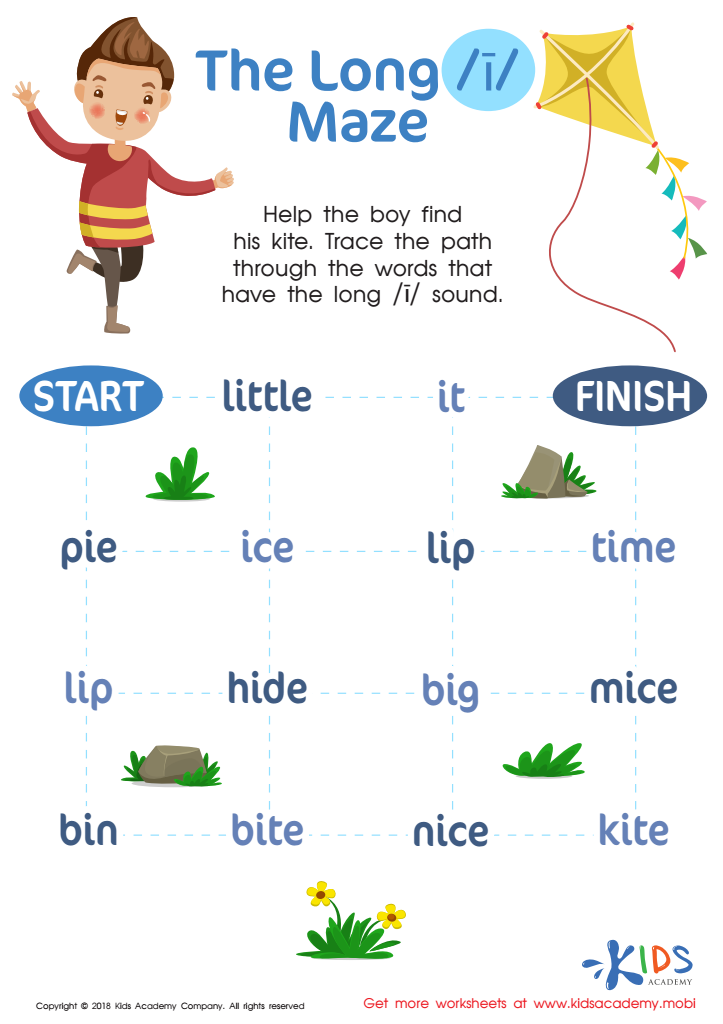

The Long I Maze Reading Worksheet
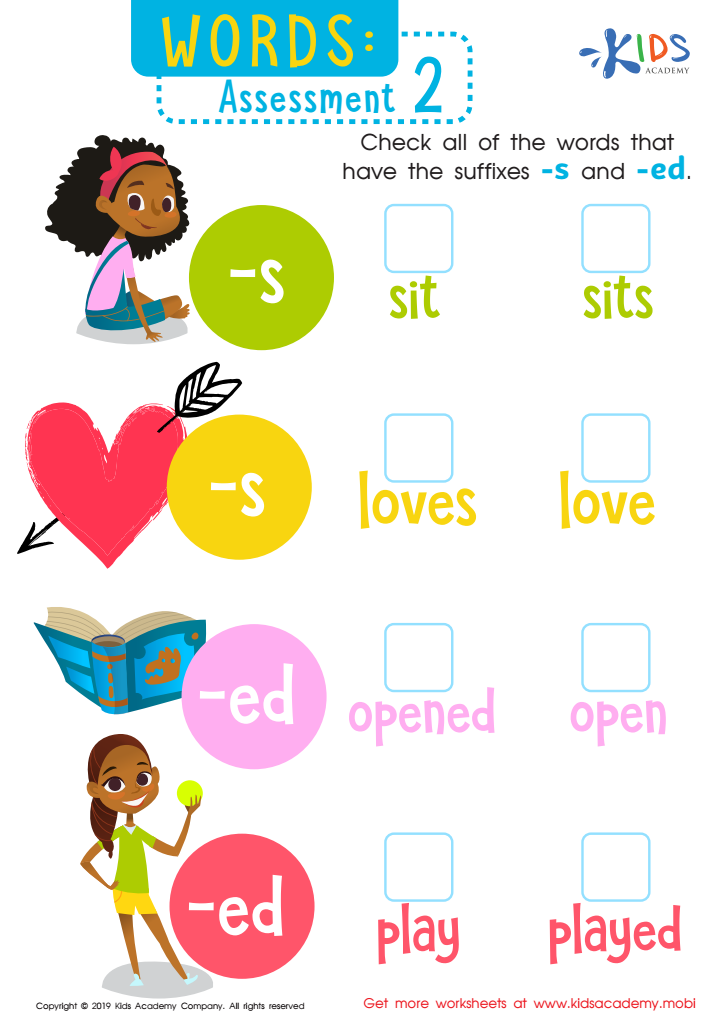

Words: Assessment 2 Worksheet
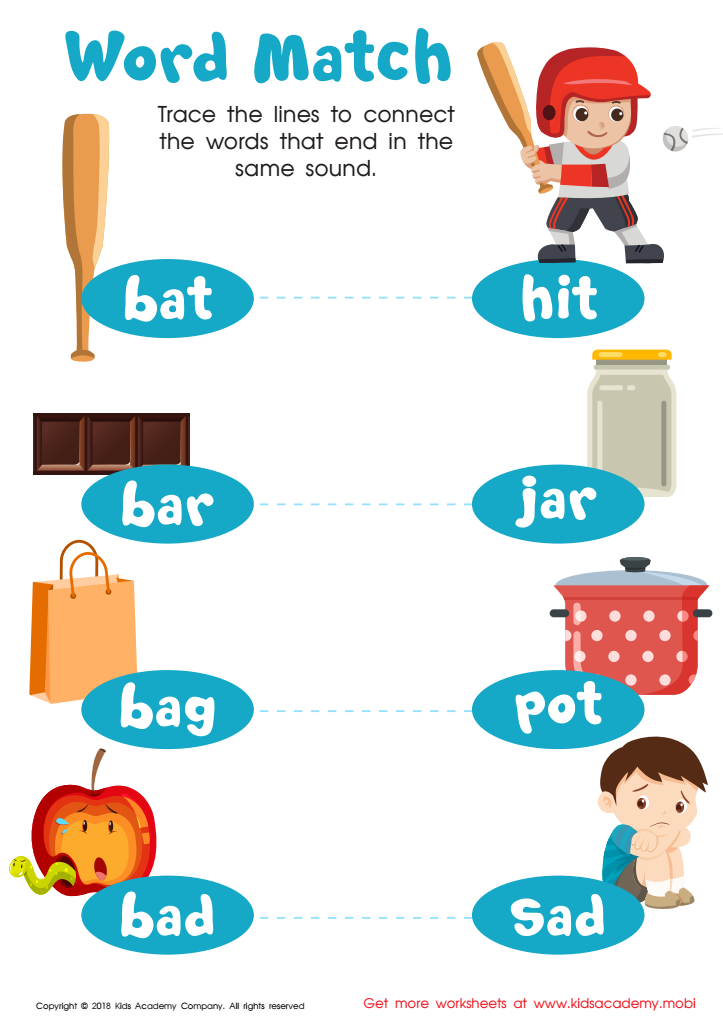

Word Match Reading Worksheet
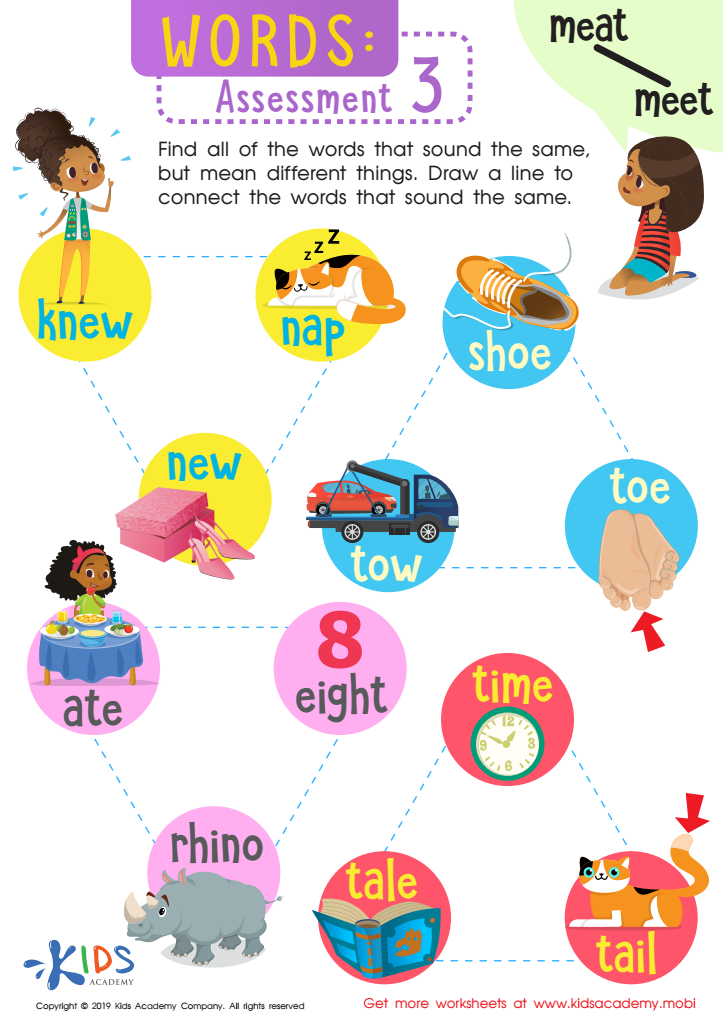

Words: Asessment 3 Worksheet
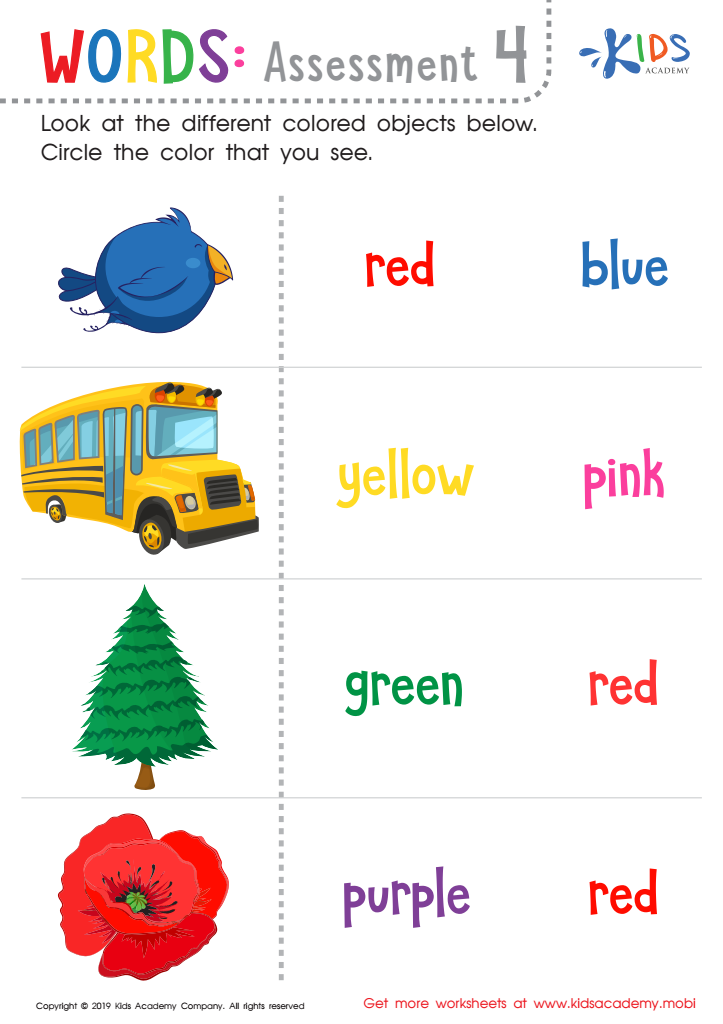

Words: Assessment 4 Worksheet
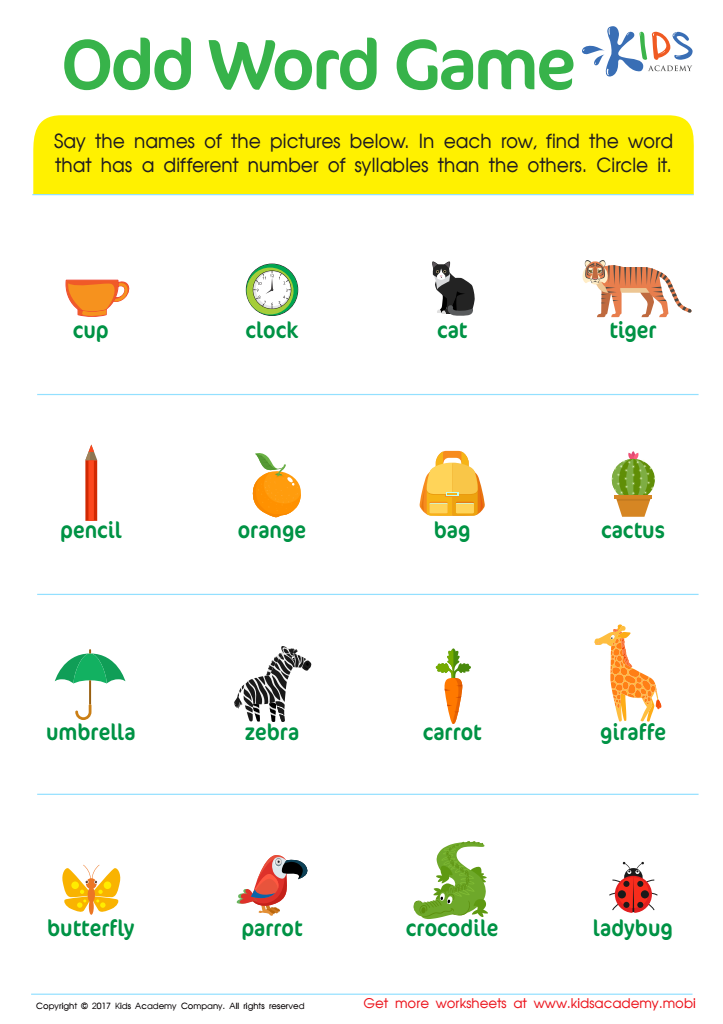

Count Syllables: Odd Word Game Worksheet
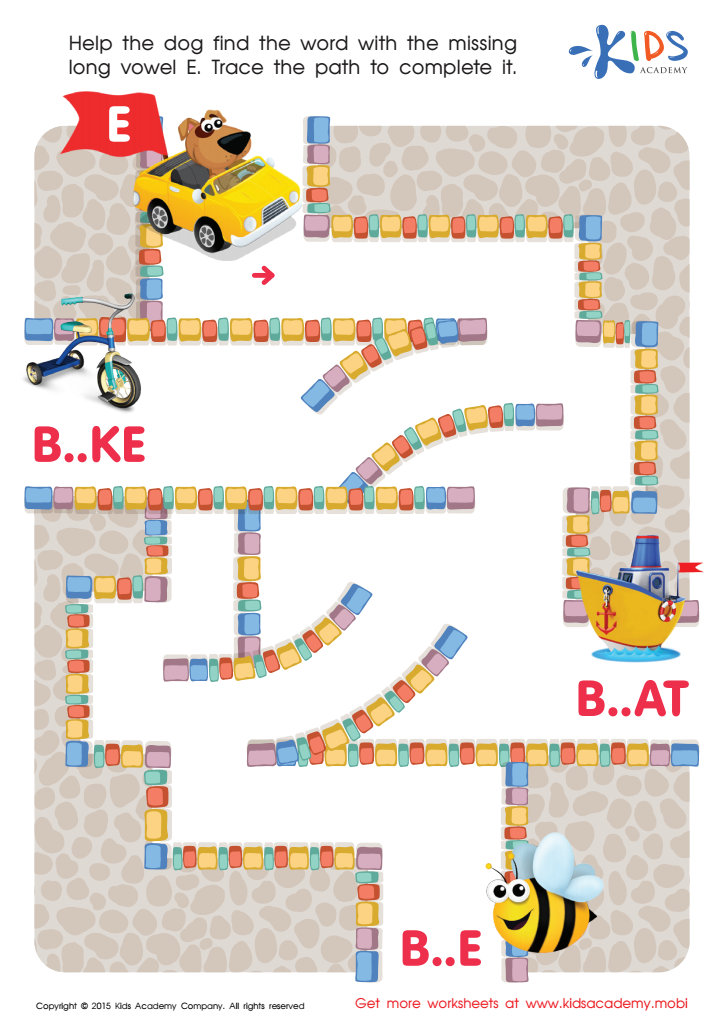

Long Vowel Sound E Worksheet
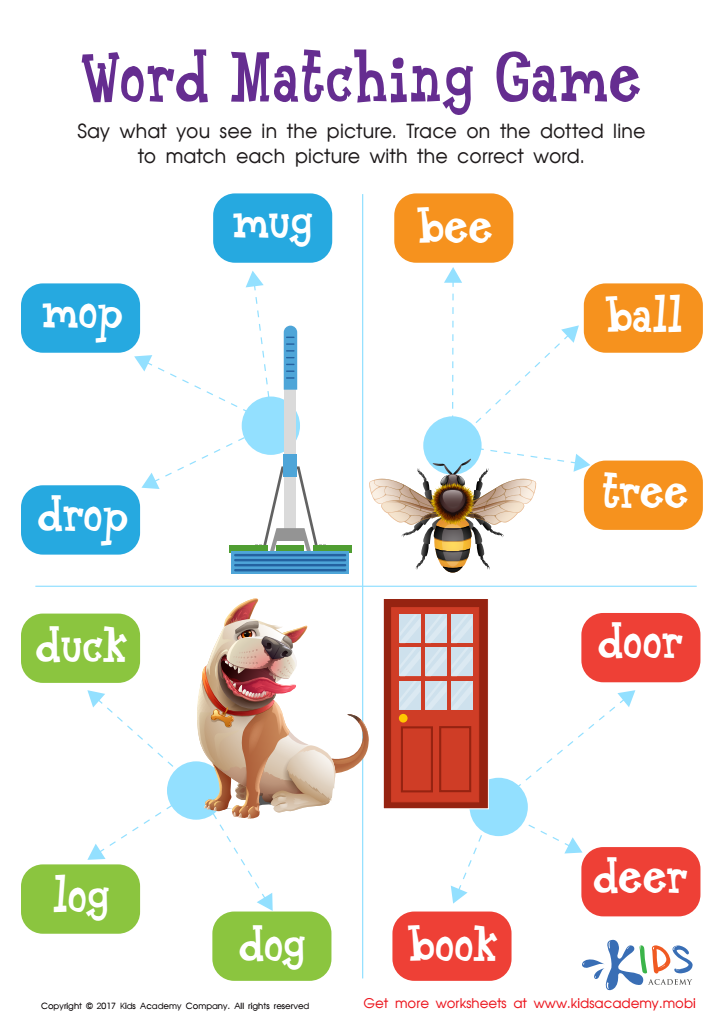

Word Matching Game Worksheet
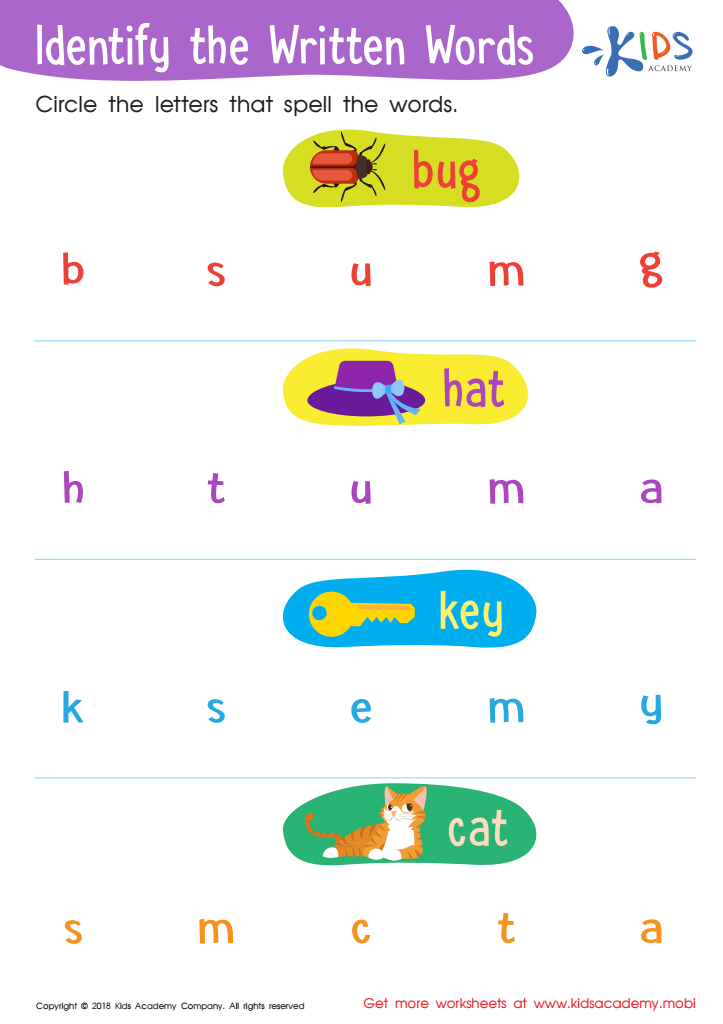

Identify the Written Words Worksheet
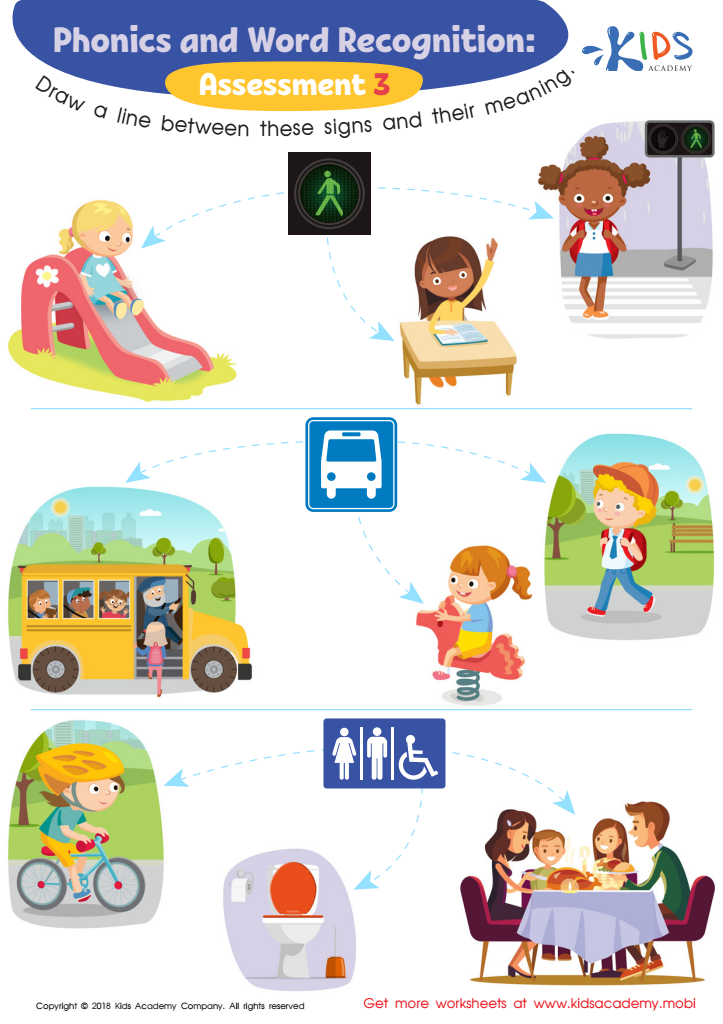

Phonological Awareness: Assessment 3 ELA Worksheet


Words with sound f Reading Worksheet
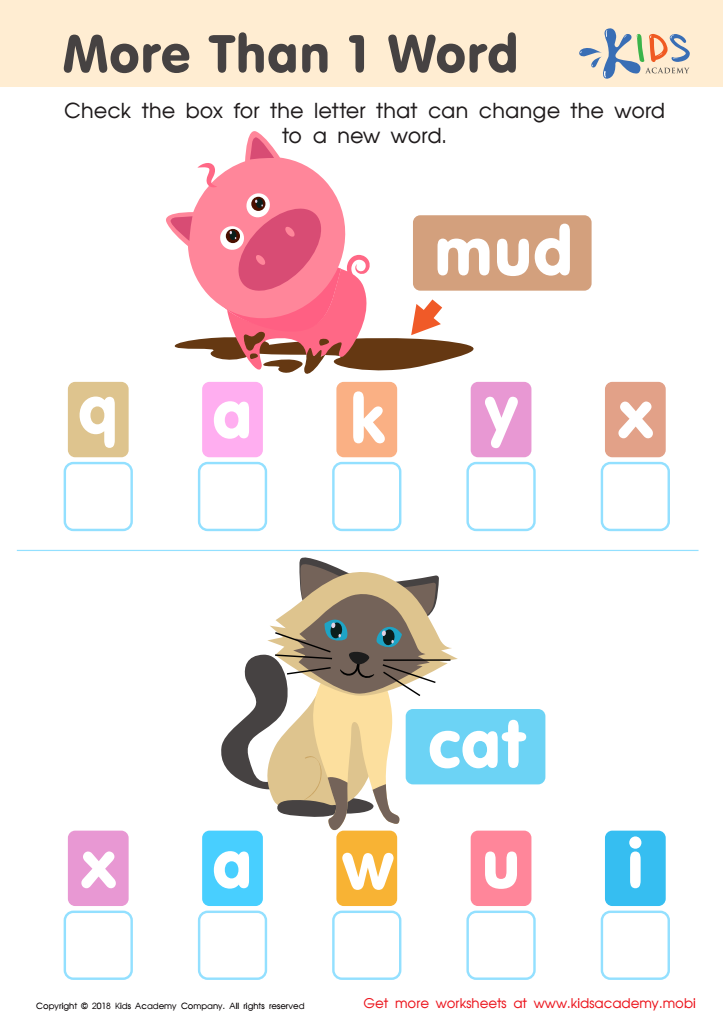

More than 1 word Worksheet
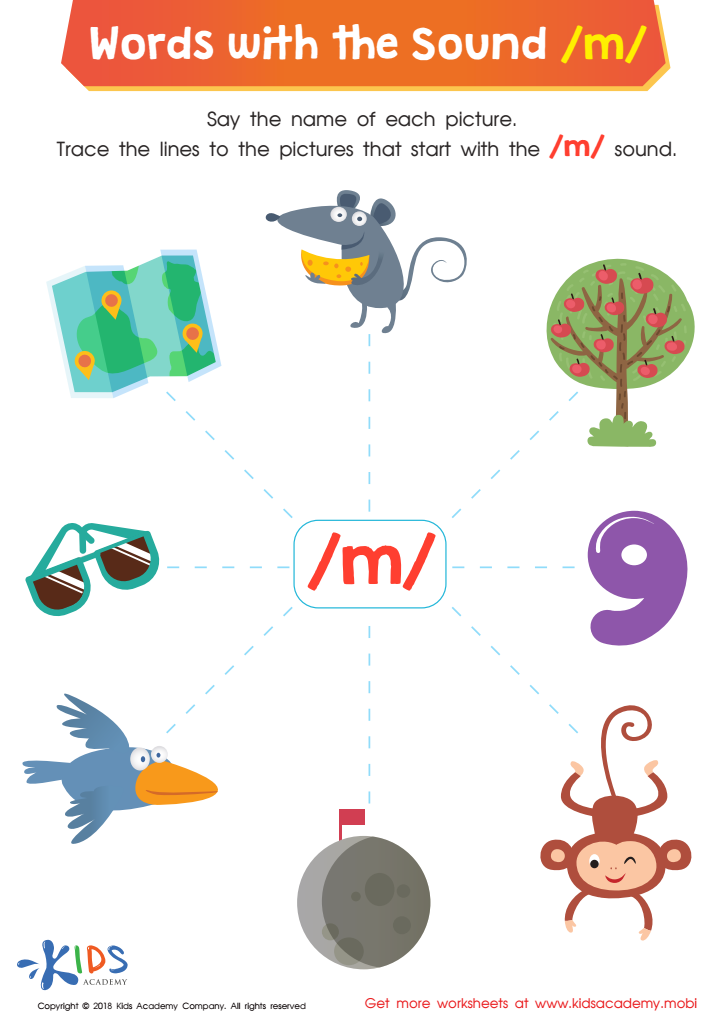

Words with Sound M Reading Worksheet
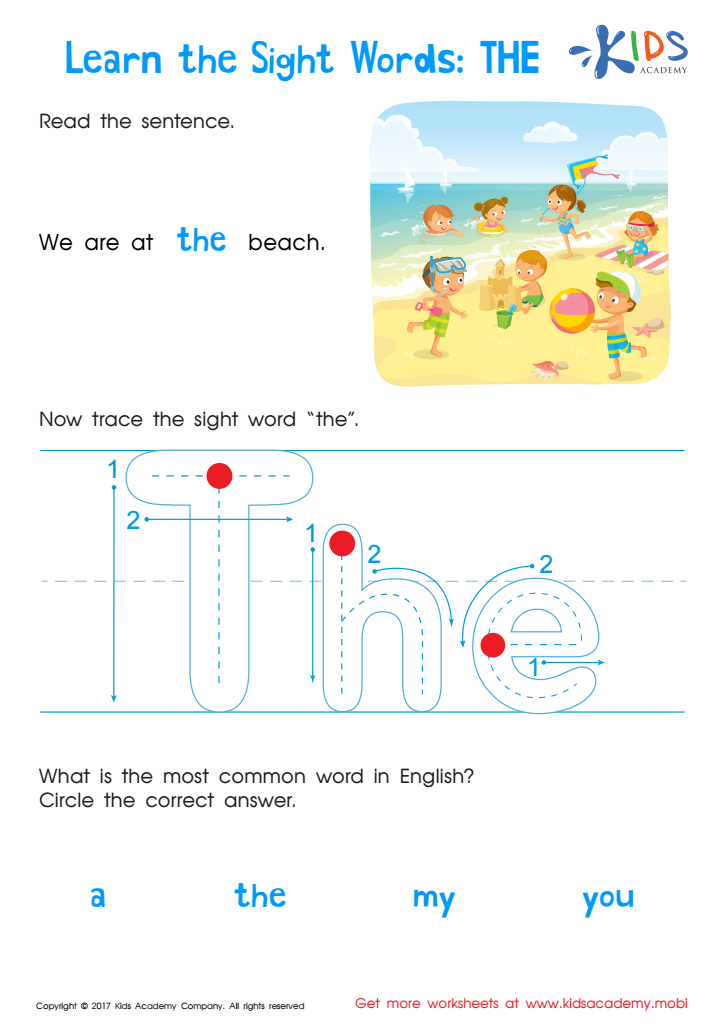

Sight Words: The Worksheet
Word recognition and phonics are foundational components in early literacy development, particularly for children aged 4-5. Parents and teachers should care about these skills because they lay the groundwork for all future reading success. At this age, children's brains are highly receptive to learning language patterns and sounds. By focusing on phonics, kids learn to associate sounds with letters or groups of letters, aiding in their ability to decode new words.
Word recognition, on the other hand, helps children recognize familiar words quickly, promoting fluency. When children can automatically recognize commonly-used words, they spend less cognitive energy on each word and more on comprehension.
Moreover, strong phonics and word recognition skills boost a child’s confidence in reading. Without these skills, children may struggle, leading to frustration and a potential aversion to reading. Literacy skills are directly connected to academic success across all subjects, not just language arts.
Investing time in teaching phonics and encouraging word recognition also helps develop essential cognitive skills such as memory, attention, and processing speed. It builds a solid foundation for higher-order reading skills, such as understanding text structure and making inferences, critical later in life.
Early literacy interventions ensure that children are equipped with the necessary tools to become proficient readers, setting a positive trajectory for their educational journey and beyond.
 Assign to My Students
Assign to My Students

















